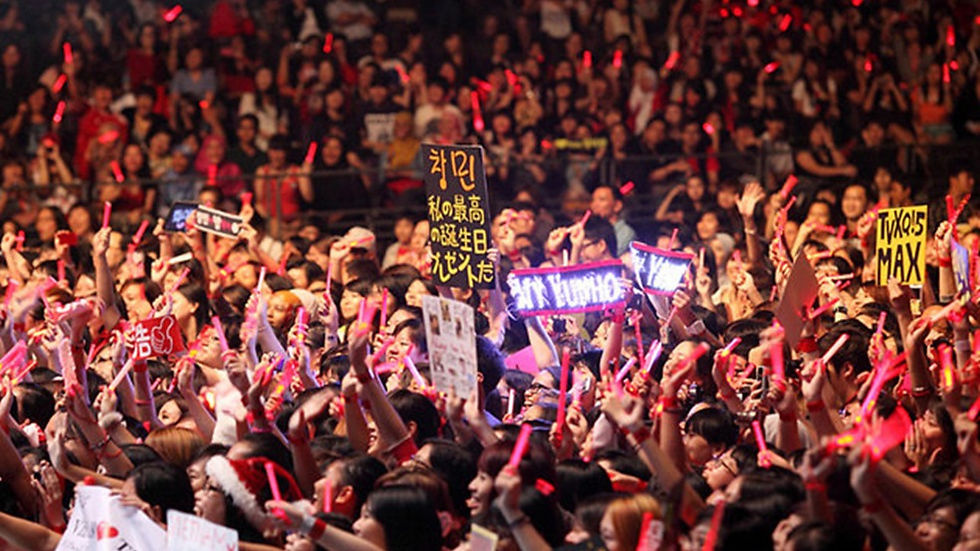Why K-pop will fail
- Isa Zyby
- Feb 29, 2024
- 6 min read
Updated: Mar 3, 2024
Before reading, I would like to mention that this is just the first half of my story, the other one being available in the follow-up article titled "Shattering the camera lens: behind the picture-perfect life of the idol".
In this 21st century environment, there have been lots of changes in too many industries to count. From STEM to cinematography, these domains have been deeply impacted by the waves of evolution that hit over time. Nevertheless, one domain I want to talk about is the music industry, more specifically, its South-Korean counterpart, K-pop.
Over time, this subgenre has had its ups and downs, gradually rising to international popularity and, with the help of classic names like BTS and Blackpink, sprung to worldwide recognition and appreciation. People started seeing K-pop in more and more places, and people were getting more and more curious about it. The small fan bases that existed prior to this popularity surge amplified and gained fans way faster and in bigger numbers than ever before.
But what drives this specific fandom? Why, of all other non-English speaking countries, was South Korea chosen as a pillar for musical development? What makes K-pop, well, K-pop? I will divide this last question into two parts: firstly, how K-pop became what it is now, and secondly, what K-pop is built on.
How K-pop became what it is now
K-pop first got its status as a subgenre of music, not just music sang in Korean, sometime around de '90s, when the first generation of groups and soloists came in the national spotlight. Up until the 2010s, it remained at kind of a constant growth in popularity, aiming towards a more domestic audience, rather than an international one. That all changed when names like BTS and Blackpink entered the Billboard charts - that is, the USA official musical stats. Seeing these strange, foreign names, natural curiosity followed: who are they, and what is that music? An amazing thing happened after that, both from a Korean and a worldwide perspective: hallyu.
Translated literally from Chinese, hallyu means Korean Wave - it's the official term used to refer to the phenomenal growth of Korean culture and popular culture encompassing everything from music, movies, drama to online games and Korean cuisine, just to name a few. It also represents how K-pop became what it is now: a popularization of South Korea and its integrity, a wave washing over the past and leaving behind traces so significant they take certain spots in history. This exponential recognition of Korean aspects stands firmly at the base of, and acts as one of, if not, the sole character in K-pop's play for popularity.
Now, this is the answer for the first question, how K-pop became what it is. Just think about it: South Korea is becoming a globalized concept. People from all around the world get to interact more with its culture, and they also get to represent the building block of this hallyu wave. Their participation is assimilated, appreciated and integrated in the country's development, where they get to play protagonists for brief moments - wait. Wait a minute. Foreigners shape South Korean entertainment? Isn't that kind of intrusive? Doesn't it seem like the country's culture is transitioning from conservative to participatory? All these questions lead up to the answer of another main question:
What K-pop is built on
You might've noticed some contradictions in the previous statement, such as intrusiveness vs. confined cultures and participatory vs. conservative culture. This is a perfect summary of K-pop's foundation: contradictions. Let's look at this through the magnifying glass.
With hallyu, so many values clashed with previously established ones. What was supposed to be Korean entertainment turned into a Westernized industry, only with some modifications; traditionalist values were up against social evolution and, most importantly, the fans were split in intercultural standoff: Korean versus everyone else. This sounds like an impossible foundation to build on - contradictory terms act like negatives, and basic math dictates that adding them won't get you anywhere farther. If anything, it gets you even further behind evolution, encountering clash points from every direction. How could you fight a losing battle?
But, something interesting happens in this agglomeration of contradictions. Those negatives aren’t just added, they’re multiplied, and that same math states that their multiplication results in a positive. So, K-pop isn’t just contradictions, it’s a whole mess of them, a whole amplified mess of them, in which clarity can appear. Basically, these whole contradictions form a dichotomy, a split concept, where contradictory terms work in perfect harmony. K-pop’s made out of controversies that are tamed by a spirit of unity, and it’s made out of elements that individually seem to cause complete chaos, but, when together, work like a well-oiled machine.
I think this answers the main question: K-pop came to be what it is now because of a serious amount of contradictions, and it behaves in constant dichotomy, where negatives cancel each other to form one big positive. These forces clash with such amplitude, they shape something so impromptu and impressive, it's too good to be true.
The two biggest forces I've seen drive the fandom are, arguably, the fundamental ones, over which constant development took place: cancel culture and over appreciation. Again, you can see this pattern of contradiction, which stands as the founding stone of K-pop and its fandom.
Cancel culture is basically boycotting someone or something because of a perceived wrongdoing. A simple example goes like this: you and your other three friends heard someone say a racial slur, so you decided to cancel that person, or, in other words, stop supporting them, by cutting any contact with them. Now, you participated in cancel culture, the phenomenon of cancelling people.
This hypothetical example doesn't stand a chance against what cancel culture can and has become, especially in the K-pop fandom. Instead of having a real, reasonable meaning behind the boycotting, some fans nowadays decide to not support idols anymore for irrational reasons. For example, girl group IVE's member Wonyoung was cancelled for being "a pick me". Why was she labelled a pick me? Because she ate a strawberry. Some fans say that the manner in which she ate it called for attention, and so they decided to stop supporting her for a brief period of time... because of a strawberry. This just shows one extreme of K-pop's fandom, more on the negative side.
The other one, over appreciation, has more of a positive note that is often exaggerated. By that, I mean that some people are more liked than others for, again, irrational reasons, not motivated by a solid meaning. For example, an artist is liked more than another just because they have more fans.
In K-pop's fandom, mainstream opinion is a big deal, and the tendency is to follow what others have done. Let's take boy group BTS's fan base, ARMY. BTS wasn't a big group at first, as they came from a small company, but they eventually found remarkable success. Instead of this being recognized as sincere effort and have just simple respect for their hard work, ARMY exaggerate this journey, focusing on all the details to make the group appear more genuine than they already are. BTS is liked more because of this exaggeration, how they've come a long way and faced challenges, even though most groups go through the same journey.
These two forces, cancel culture and over appreciation, come in massive amounts and with amplitudes so big, they can, individually, harm. This leads me directly to the title of this blog post, why K-pop will fail.
The stability of the formation made by contradictory forces is so thin and unstable, it relies mostly on hopes and prayers. It takes equal forces for there to be dichotomy - not any misunderstanding can polarize the other. So, by this logic, if any of those forces tips the scale, we won't have what we now know K-pop as, a harmonic equilibrium of international and domestic. If more and more people get cancelled for any small action, or if more and more standards are blurred because of over appreciation, there will be no more K-pop, just another subgenre whose fandom tends to lean more towards one side rather than the other.
Fandom is complicated, and at any point, anything could tip that scale. But for now, all we're sure of is that K-pop's contradictions somehow work in a frenzied harmony, in which cancelled people are met with waves of appreciation and support. Or, you know, people who were loved by the public do one thing and are completely erased off the K-pop roster - spoiler for the follow-up post.
Anyhow, to recap the big answers to the bigger questions, K-pop was formed thanks to hallyu, and is being built on a contradictory foundation, filled with messes of values and morals. It's driven by the fans, and, especially, fans' behavior, which can act as such a strong force, anyone can become its prey.
For the sequel of this thread, find "Shattering the camera lens: behind the picture-perfect life of the idol" in my gallery.




Comments